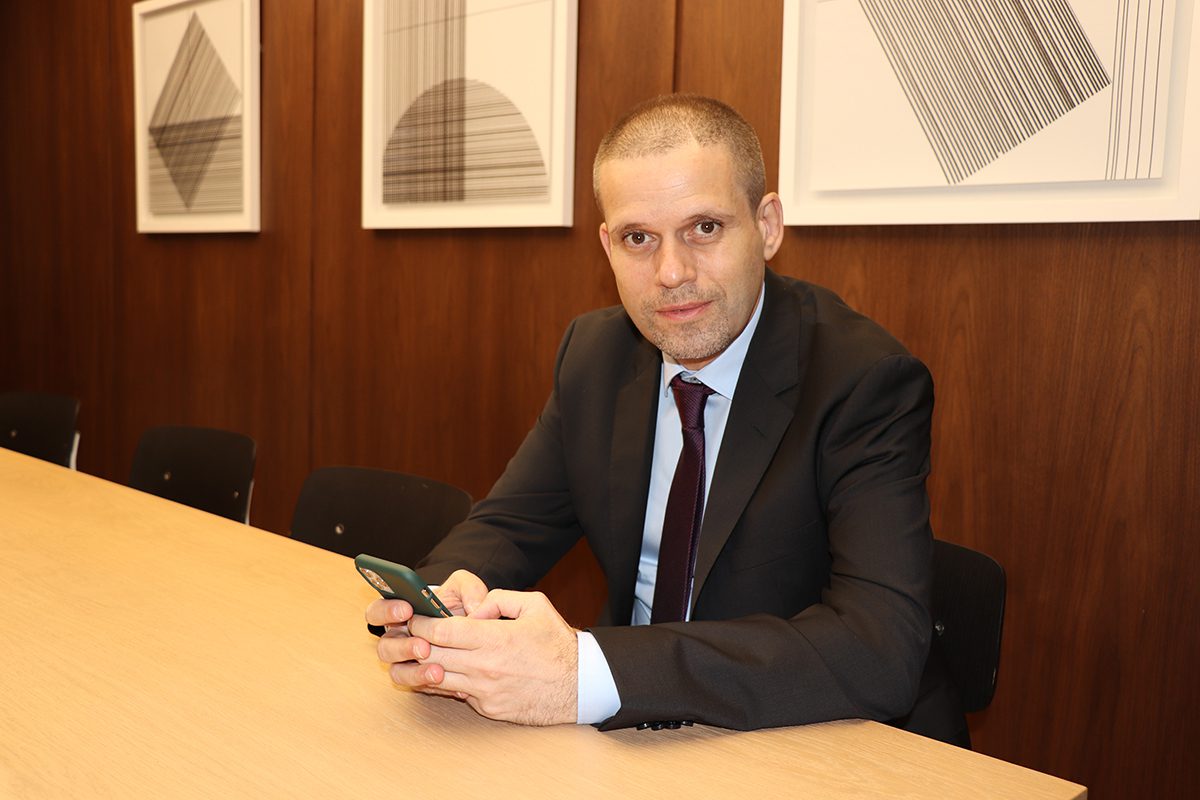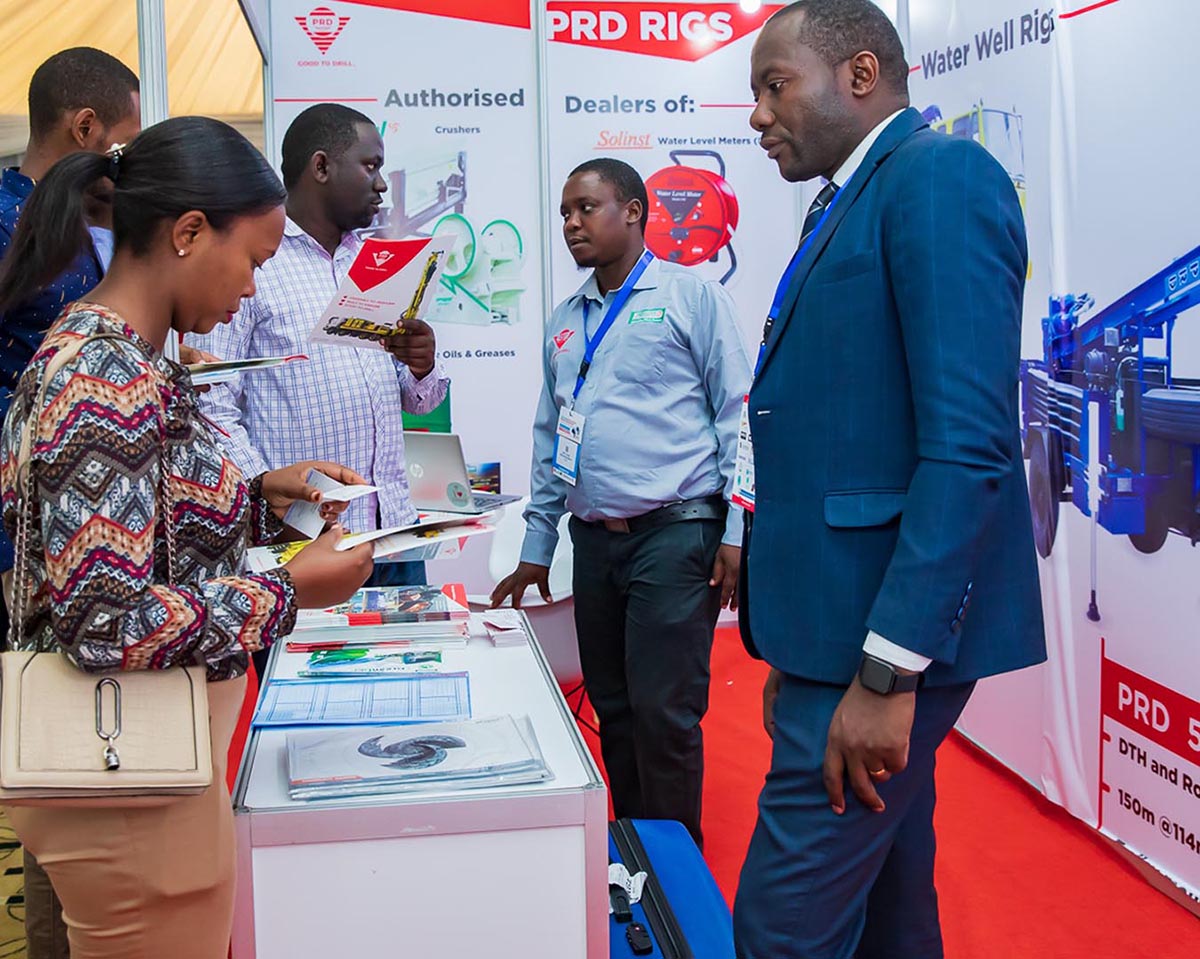
With multiple drivers for growth in the industrial market, the challenges for water in Africa are more around implementation than technology, says Walid Khoury of water engineering firm Desalytics, as he prepares for Water Africa 2024 in Ghana in June.
What are the main challenges for the water market in Africa?
The challenge we see in Africa is on two fronts – of course the UN’s sustainable development goal 6 (SDG6) around proving sanitation and clean water to populations, but what is sometimes missed is significance of the industrial sector. If industrial production and manufacturing is not properly taken care of, you will have the population competing on water availability, but also water quality, because industrial clients can be polluting.
As someone who has worked in the African market for 17 years, the real challenge I am seeing is the need to focus more on the industrial side, which represents the biggest part of the solution. First because they have the money to invest in solutions, secondly because they can contribute more to maintaining the aquifers around their operations, and also, they can use less water in their operations.
The most progress can be made by the private and public sectors working hand-in-hand, so we can get to a point where we can talk about water abundance rather than water scarcity.
What are the main drivers in water on the continent and in West Africa in particular?
Africa as a whole is an interesting market, as are Ghana and West Africa in particular, because you have all the dynamics – demographic change, urbanisation and industrialisation, along with a tightening regulatory environment. There is a fast-growing population, with many people are moving into the cities, which is placing more stress on the aquifers and water quality and availability.
Then you have Industrialisation, which means higher GDP per capita, so more people have more money to buy more goods, which means more manufacturing, which means more competition for the available water.
On the regulatory side, stricter measures are being introduced and enforced, which also adds more pressure on water. So all the drivers are there and Africa is one of the few markets globally where there are so many drivers working in parallel, helping the market to grow.
What kinds of solutions are in demand?
Today water engineers and water utilities and industrial end-users around the world have all the technologies they need in their arsenal. What is lacking in Africa is more on introduction and implementation of solutions, so we can shift the mindset of what is possible.
For large industrial water users, the technologies that are required to treat and test water are more or less the same as those being implemented in the more developed economies, whether that is ultrafiltration or reverse osmosis membranes or water quality monitors. It is just availability that is not there.
Implementing the technologies also means raising the capital, the funding, whatever is required to make the technology available.
Local installers and service teams also need to be able to educate clients on why they need the technology, how to use it, and how to service, commission and maintain it. I have seen lots of cases where some funding was made available and products were sent to Africa and then there was no budgeting for spare parts, for follow up, for training. and then it ends up being a waste of money.
The most important part is to make the skills and technologies locally available and be able to support clients and help them locally. That is why Desalytics was started, to have people on the ground in Africa, who were from Africa, and understood the cultural and the client needs.
What funding sources are available?
Finance is multifaceted, coming from the World Bank, the African Development Bank and active development agencies like USAID. On top of that you have the private sector and the consumer. For example, Ghana Water provides water to the population and receives payments from these customers.
So there is a mix of multiple revenue generating streams, and these are growing and diversifying, which is helping the market to grow. Global players in the food and beverage sector like Coca-Cola, Diageo and AB InBev are aiming to offset their water consumption by creating projects where they can return water to the aquifer.
They are making clean water available for domestic consumption in order to augment their own supplies, because they have reached the point in their own manufacturing processes where they cannot reduce their water use further. Breweries requires 3.8 litres of water for a litre of produced beer, so you cannot go further because you need the water to produce beer.
You are moderating a panel on industrial water in the Water Africa seminar programme – what can delegates expect?
Technology suppliers have been invited to talk about how their solutions can impact industrial water, but we are also inviting water end-users to be panellists, those who are running industrial plants and utilities.
These parties can exchange ideas and discuss how companies can optimise their water footprint in industrial settings. Delegates will hear about technologies and innovations with case studies from Africa, especially Ghana, so people can see that these measures can be introduced and implemented locally. They will hear real cases that can be rolled out on the ground.

What is the benefit of taking part in exhibitions and seminar programmes like Water Africa?
Events like Water Africa are very common in the US, Europe and Asia, but we do not see so many of them in Africa. Water Africa has been running for a long time, so it is well established and always brings together all the key players. In Ghana that includes Ghana Water, the municipalities, the Minister of Environment, the universities – everybody is invited and actively participating in such events, everybody is involved.
It is very important to have these kinds of events when everyone is brought together to share expertise, present the latest offerings, find out what is happening globally, but also locally, and trying to see what can be applied in Ghana, in West Africa. People come from all around the region, and you share ideas; they can talk to you about their challenges.
It is important for companies to be present, and to see their involvement as a long-term investment in the region. Building relationships is hard work and it takes time, which is why we need events like Water Africa, and we need them to happen every year, so that we can build relationships and build trust.
What does success look like for Desalytics?
For Desalytics I measure success in terms of the impact we are making. It is always possible to go out into the world and sell products for our technology partners, but genuine impact should be more about long-lasting measures like how many engineers we have on the ground, how capable they are, what training they are experiencing.
Diversity matters to me, including the gender balance in our organisation, which comprises 55% African women. If you have the basics covered – capable local people on the ground, diverse employees, then everything else follows.
We have had a lot of success in terms of improving membrane operations or other systems operations, or improving water quality in terms of microbiological measures like E coli, but the main one is in transferring that knowledge to local engineers. There are plenty of talented people across Africa, so it pays to give them opportunities to start working in decent organisations where they can learn a lot.
I started my own career at Nalco, which was lucky because Nalco has its own water university. The more facilities like this we can have locally, providing training for people to understand how the technologies work in application – that would be a big success.
What advice would you give to companies entering the African market for the first time?
I always encourage the multinationals we work with to look at Africa, especially West Africa and Ghana, because growth will definitely come from there.
Those entering the African market need to look for local companies and partners who understand the culture and who can be reliable on the ground. This is because you also need to focus on the compliance, and the currency risk. As with any market, there are risks, but if you have the right local partner, who can meet those clients face-to-face, it is possible to be successful.
Overall the outlook for sub-Saharan Africa is positive. It is one of the last regions in the world where there is still a lot of work to be done. So even without the wider demographic trends and industrialisation, there is still a gap, and a need to bring the sub-Saharan region up to standard in terms of water and sanitation, industrial processing and pollution prevention.
Water Africa 2024 exhibition and seminars are co-located with West Africa Building & Construction and takes place 26-28 June 2024 in Accra, Ghana. For more information visit https://www.ace-events.com/.







